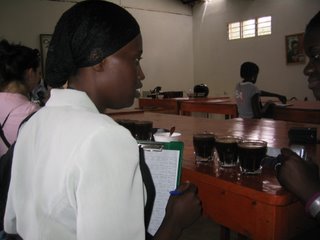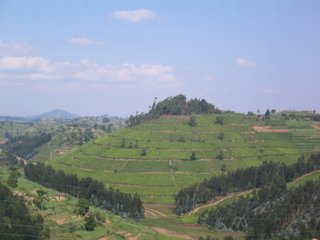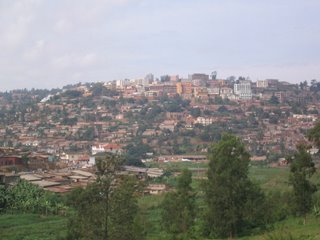Rwanda-Burundi
BURUNDI-RWANDA: Thousands more asylum seekers repatriated
BUJUMBURA, 13 June (IRIN) - Since 12 April, the Burundian government has repatriated 5,206 Rwandans from its northern provinces of Ngozi and Kirundo, an official of the United Nations refugee agency (UNHCR) said on Monday. "About 2,000 refugees are repatriated per week," said Catherine-Lune Grayson, UNHCR's public relations officer in the Burundian capital of Bujumbura. "There is a convoy tomorrow [Tuesday] and another one later in the week." Grayson said UNHCR organises two convoys per week, the size of which depends on the agency's capacity and the number of Rwandans willing to return home. The agency provides transport, while the UN World Food Programme (WFP) distributes a one-month ration to the returnees."All the Rwandans will have been repatriated by August," said Didace Nzikoruriho, an official in charge of refugees in Burundi's Ministry of the Interior. Between April 2005 and March 2006, some 19,000 Rwandan asylum seekers had arrived in Burundi's northern provinces. They were reportedly fleeing persecution under Rwanda's traditional 'gacaca' justice system, which the government introduced to expedite trials for thousands of suspects held in connection with the 1994 genocide. Some Rwandans grouped at Musasa and Songore camps in Ngozi, while others lived in informal sites at Rwisuri in Kirundo. In June 2005, thousands of these Rwandans were repatriated, allowing Burundi to close the transit camp in Ngozi Province where they had been staying. The repatriations followed a mutual decision by the governments of Burundi and Rwanda to re-label the asylum seekers "illegal immigrants" and speed up their return to their home countries. In spite of the measures, however, Rwandans kept re-entering Burundi.On 10 April, the Burundian government threatened to expel all Rwandan asylum seekers who failed to meet conditions for acceptance as refugees. A joint technical commission, comprising UNHCR and government experts, started in December 2005 to analyse individual cases to determine the Rwandans' eligibility for refugee status. Nzikoruriho said on Monday that of 3,500 cases analysed so far, only 87 Rwandans had been granted refugee status. Most of them have been transferred to the Giharo refugee camp in the southeastern province of Rutana.UNHCR has not recorded any returns to Burundi since the latest repatriation began in April, Grayson said, adding that the situation was different from 2005 as, this time, the asylum seekers chose to "repatriate voluntarily".Meanwhile, the repatriation of Burundians who had sought asylum in Rwanda - fleeing hunger and rumours of war - is also continuing. Grayson said that since the beginning of 2006, 449 Burundians had returned home, 417 of them in the last three weeks. UNHCR estimated there are still 2,500 Burundian asylum seekers in Rwanda.[ENDS]







